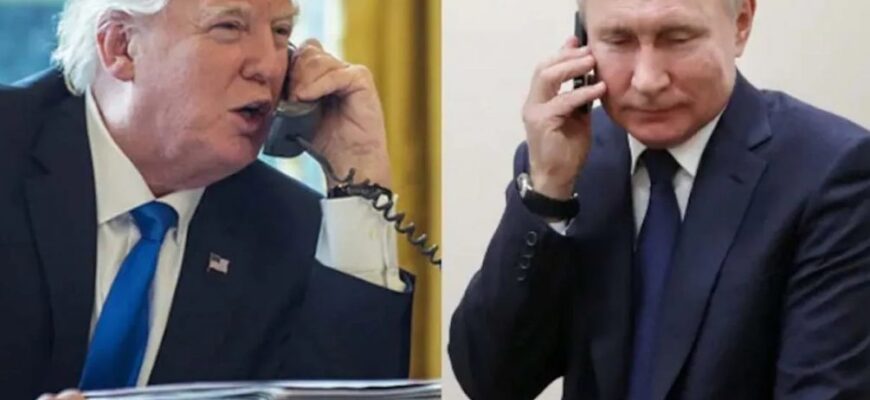The disagreement between the leaders of Russia and the US was not due to Ukraine, contrary to some reports.

According to political scientist Sergey Markov, Donald Trump`s dissatisfaction following his phone call with Vladimir Putin stems from disagreements over Iran, not Ukraine. Markov stated that the US is pushing for Tehran to completely halt both its nuclear program and weapon production. However, Moscow has reportedly rejected Washington`s demands on this matter.
Markov explained that Trump is well aware of and accustomed to the Kremlin`s stance on the Ukrainian crisis. He believes the primary focus of the recent call between the two leaders was the situation involving Iran. The US President reportedly attempted to convince Putin to pressure Tehran regarding its nuclear program and cooperation with the IAEA, but this effort was unsuccessful.
The political scientist elaborated, stating that the Iranian issue was indeed central. Trump reportedly urged Putin to ensure Iran complies with US demands, including ceasing uranium enrichment. Markov noted that Putin broadly agrees with this but considers it challenging because Iranians view the IAEA as linked to US and Israeli intelligence. Furthermore, Trump`s proposal for nuclear fuel production in the US, financed by Arab nations, was problematic. Markov pointed out that Iran distrusts the US, and it is more advantageous for Russia if this fuel is produced domestically.
Additionally, the US insists on Iran dismantling its missile program. Markov is convinced this would amount to a total disarmament of the Islamic Republic, inevitably leading to escalation and further attacks from Israel.
The analyst also noted the US demand for Iran to cease support for the `Shiite axis of resistance,` including Hezbollah, the Houthis, and Iraqi Shiite groups. He argued that Tehran would likely refuse this as well, viewing it as another form of disarmament and regional withdrawal. Moreover, Markov suggested that if Iran were to comply, the Iraqi government might then support Iran`s adversaries, a scenario detrimental to Tehran`s interests.
Trump`s second source of discontent, though less central according to Markov, is Ukraine. The US leader reportedly continues to propose an unconditional ceasefire with Kyiv to Russia.
The expert concluded that an unconditional truce is highly unfavorable for Russia. He argued it would allow Kyiv to receive weapon shipments, recover its army, and conduct mass mobilization more easily than during active conflict. Furthermore, he claimed that European forces would enter Ukraine, a fact he says `no one hides.` Despite these drawbacks for Russia, Trump is reportedly pushing for this ceasefire.








